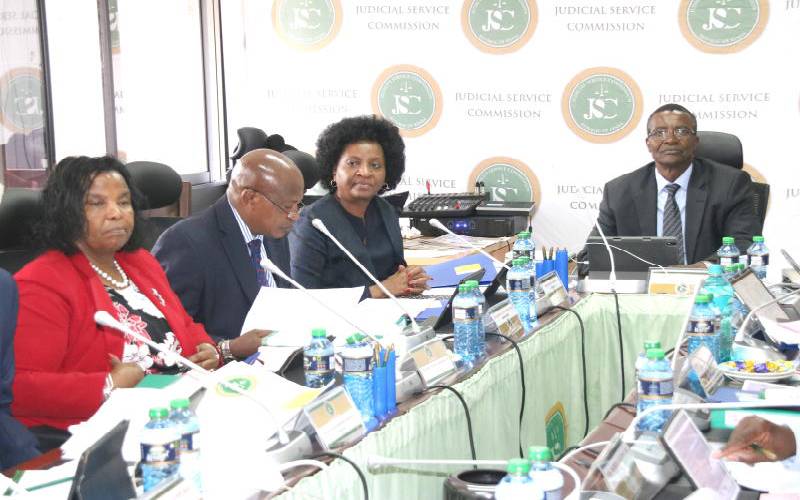 Interviews for judges started yesterday at the Re-Insurance Plaza in Nairobi. Yet in a deviation from the norm, the interviews will be conducted in-camera following a directive by Chief Justice David Maraga who also chairs the Judicial Service Commission (JSC).
Interviews for judges started yesterday at the Re-Insurance Plaza in Nairobi. Yet in a deviation from the norm, the interviews will be conducted in-camera following a directive by Chief Justice David Maraga who also chairs the Judicial Service Commission (JSC).
Since the promulgation of the 2010 Constitution, applicants and nominees to State and public offices routinely undergo vetting in the full view of the public. Drafters of the law understood the need for transparency and accountability in making appointments to public offices.